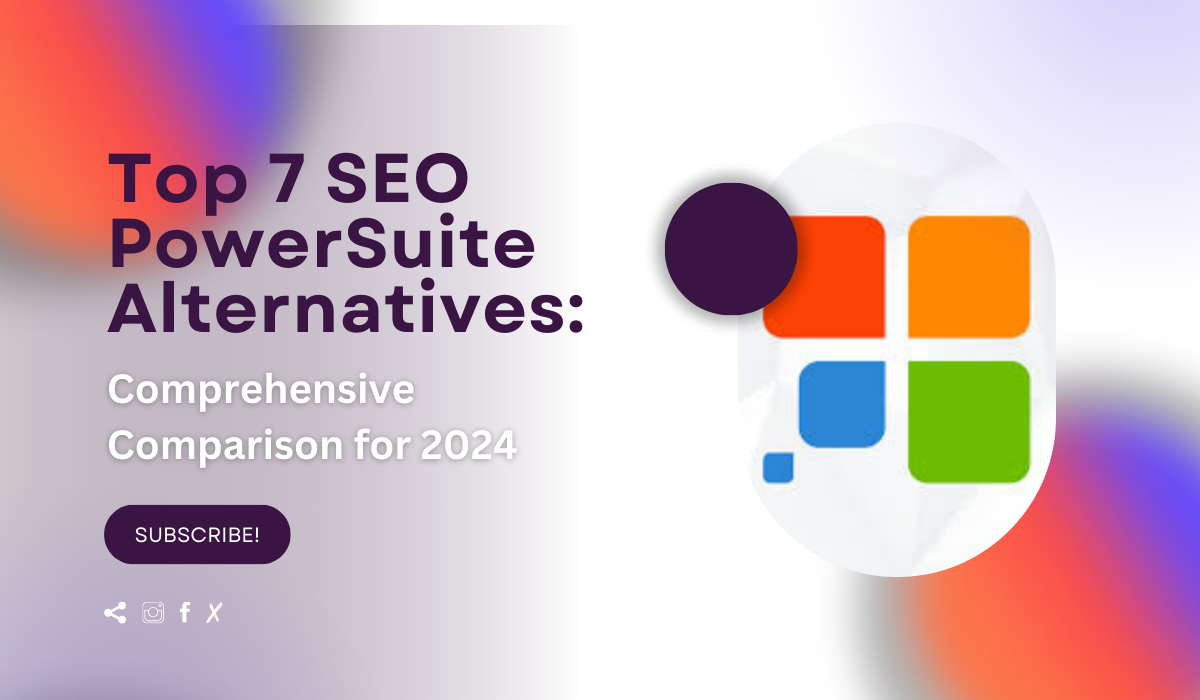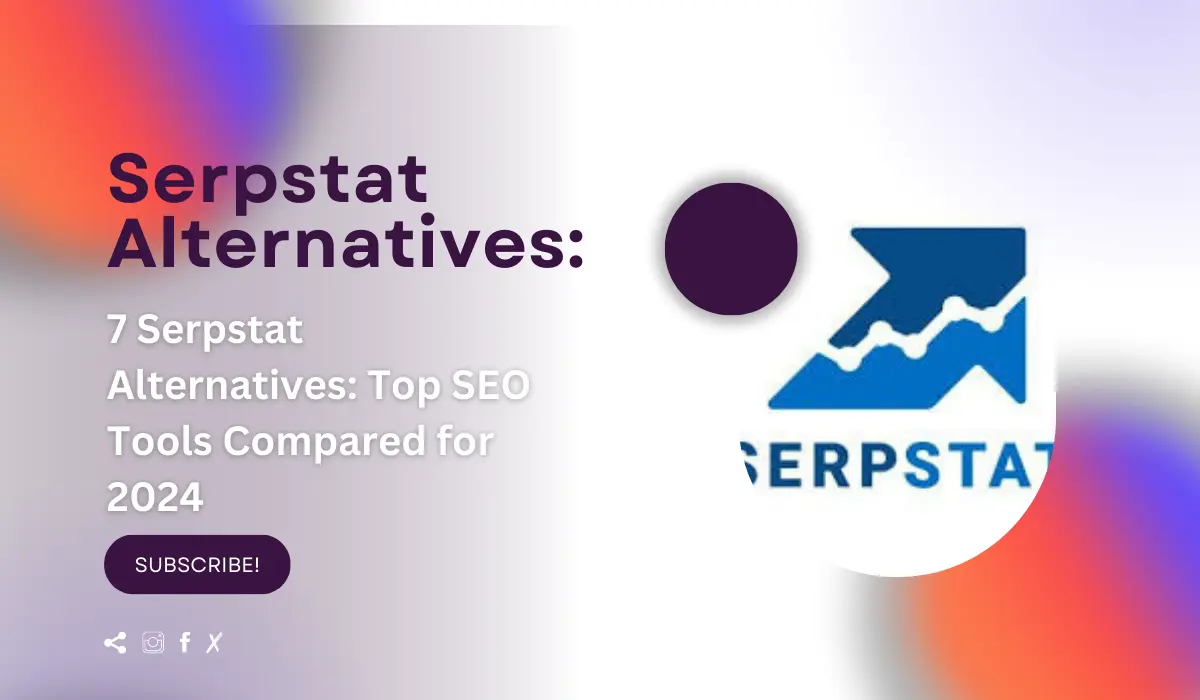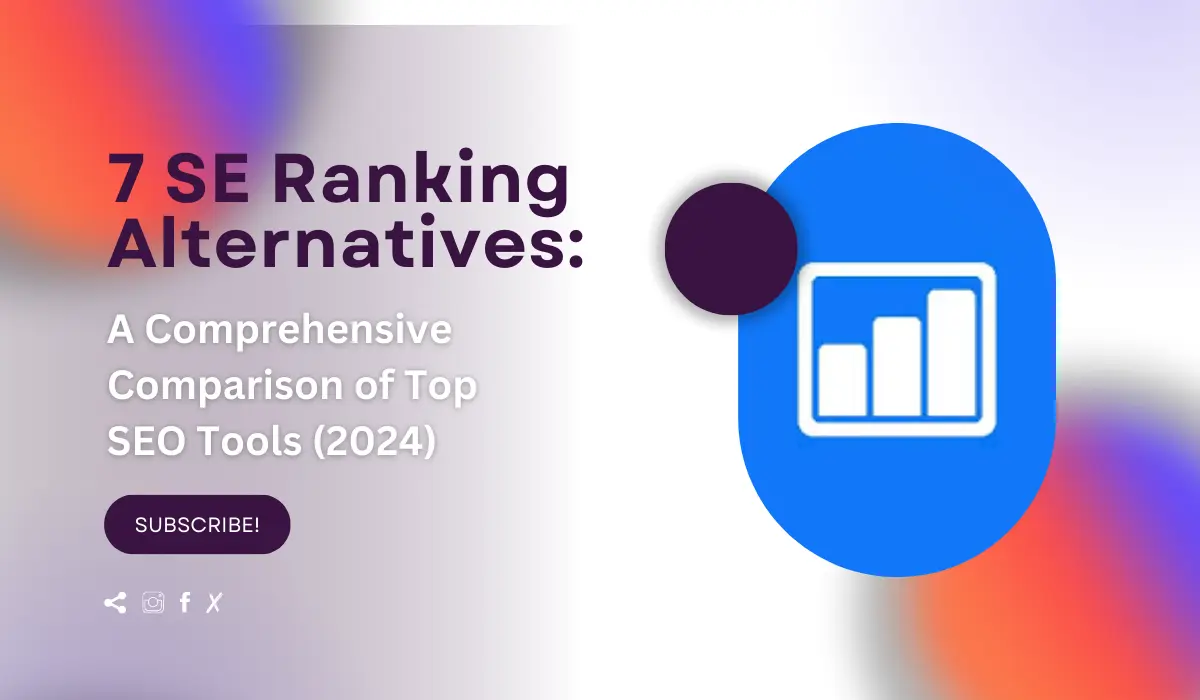In the competitive landscape of digital analytics, choosing the right tool can be a game-changer. Think of Similarweb and Google Analytics as two powerful allies in your quest for data-driven insights. But which one will help you uncover the most valuable information about your website’s performance? The Similarweb vs. Google Analytics debate is a common one among marketers and data analysts. Today, we’ll dive deep into this comparison, helping you make an informed decision that could significantly impact your analytics strategy.
By the end of this comparison, you’ll have a clear understanding of the strengths and weaknesses of both Similarweb and Google Analytics. Whether you’re a seasoned data analyst or just starting your analytics journey, this guide will help you choose the tool that’s right for your specific needs.
Similarweb vs. Google Analytics: Overview
When comparing Similarweb vs. Google Analytics, it’s essential to understand the core functionalities of each tool. Both offer valuable insights, but they cater to different aspects of web analytics.
Similarweb vs. Google Analytics: Key Features
Similarweb
Overview
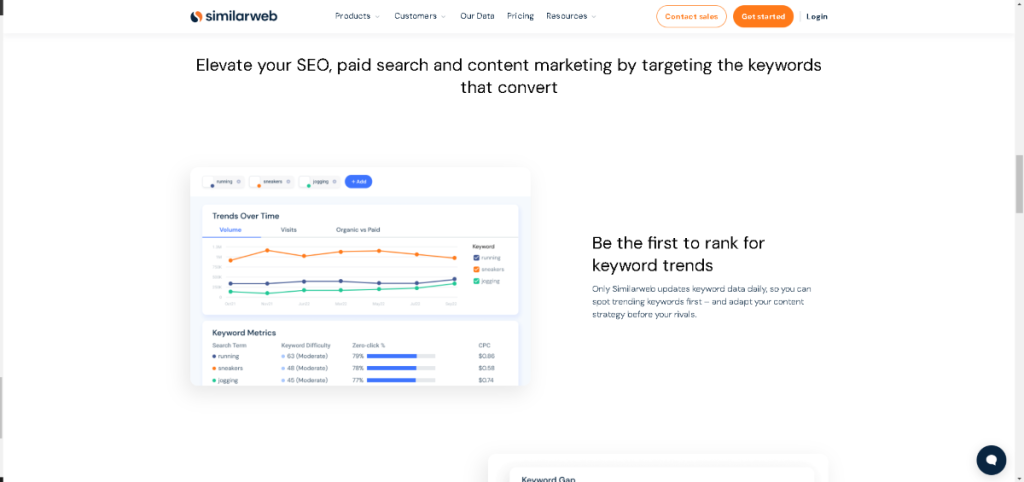
Similarweb provides a comprehensive view of your website’s traffic and competitive landscape. It’s designed to give you a broader understanding of market trends and competitor performance.
Highlights
- Traffic Sources: Similarweb excels in showing the distribution of traffic sources, giving you a clear picture of where your visitors are coming from.
- Competitor Insights: The tool provides detailed data on competitors, including their traffic sources and engagement metrics, making it a valuable asset in the Similarweb vs. Google Analytics comparison.
- Market Analysis: Similarweb offers insights into market trends and industry benchmarks, helping you understand your position relative to competitors.
Bottom Line
In the Similarweb vs. Google Analytics debate, Similarweb is ideal for users looking for comprehensive market and competitor analysis. Its ability to provide a broad overview of traffic and industry trends makes it a powerful tool for strategic planning.
Google Analytics
Overview
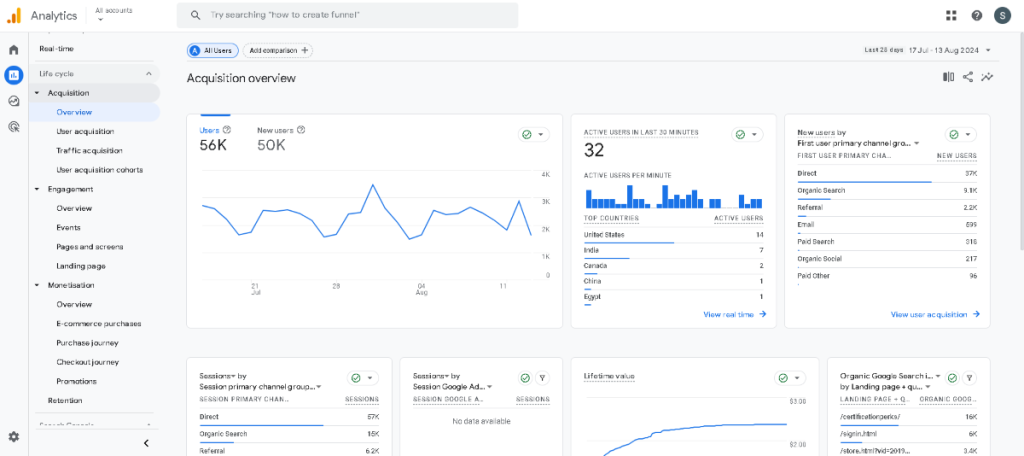
Google Analytics is a staple in web analytics, offering detailed insights into user behavior, traffic sources, and site performance. It’s known for its depth of data and integration with other Google tools.
Highlights
- User Behavior Analysis: Google Analytics provides detailed reports on user behavior, including session duration, bounce rates, and user flows, which is a significant aspect of the Similarweb vs. Google Analytics comparison.
- Custom Reports: The tool allows for extensive customization of reports, enabling you to focus on specific metrics and KPIs that matter most to your business.
- Integration: Google Analytics integrates seamlessly with other Google services, such as Google Ads and Search Console, providing a unified view of your digital marketing efforts.
Bottom Line
For those comparing Similarweb vs. Google Analytics, Google Analytics is the go-to tool for detailed user behavior analysis and customized reporting. Its extensive features and integration capabilities make it an essential tool for digital marketers and analysts.
Similarweb vs. Google Analytics: Traffic Analysis
Traffic analysis is crucial for understanding how users interact with your website. Both Similarweb and Google Analytics offer insights into traffic, but they differ in scope and detail.
Similarweb vs. Google Analytics: Traffic Insights
Similarweb
Overview
Similarweb provides a high-level view of traffic sources and trends, offering insights into how users find and interact with your site.
Highlights
- Traffic Breakdown: Similarweb offers a breakdown of traffic sources, including direct, referral, and social traffic.
- Audience Insights: The tool provides data on audience demographics and interests, which is valuable for understanding your target audience in the Similarweb vs. Google Analytics comparison.
- Engagement Metrics: Similarweb tracks engagement metrics like page views and session duration, helping you gauge the effectiveness of your site’s content.
Bottom Line
Similarweb is a strong choice for those needing a broad view of traffic sources and audience insights. Its focus on market trends and competitive analysis complements its traffic analysis capabilities.
Google Analytics
Overview
Google Analytics excels in providing detailed traffic data and user behavior insights, offering a deep dive into how users interact with your site.
Highlights
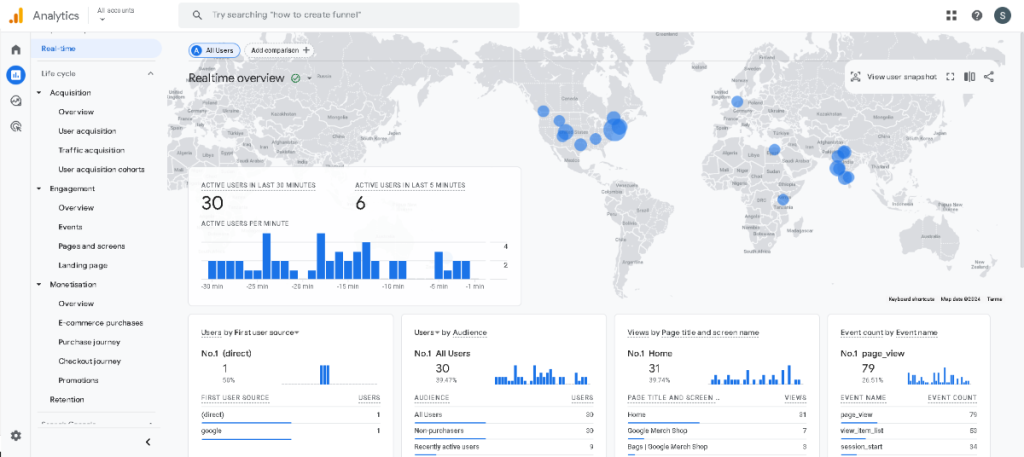
- Real-Time Data: Google Analytics provides real-time data on website traffic, allowing you to monitor live user activity.
- Traffic Sources: The tool offers detailed reports on traffic sources, including organic search, paid search, and referral traffic.
- User Segmentation: Google Analytics allows you to segment users based on various criteria, providing a more granular view of traffic and engagement.
Bottom Line
For a detailed analysis of traffic sources and user behavior, Google Analytics is the superior tool in the Similarweb vs. Google Analytics debate. Its depth of data and real-time capabilities make it indispensable for in-depth traffic analysis.
Similarweb vs. Google Analytics: Competitive Analysis
Competitive analysis helps you understand how your website performs relative to others in your industry. Both Similarweb and Google Analytics offer tools for analyzing competitors, but their approaches differ.
Similarweb vs. Google Analytics: Competitor Insights
Similarweb
Overview
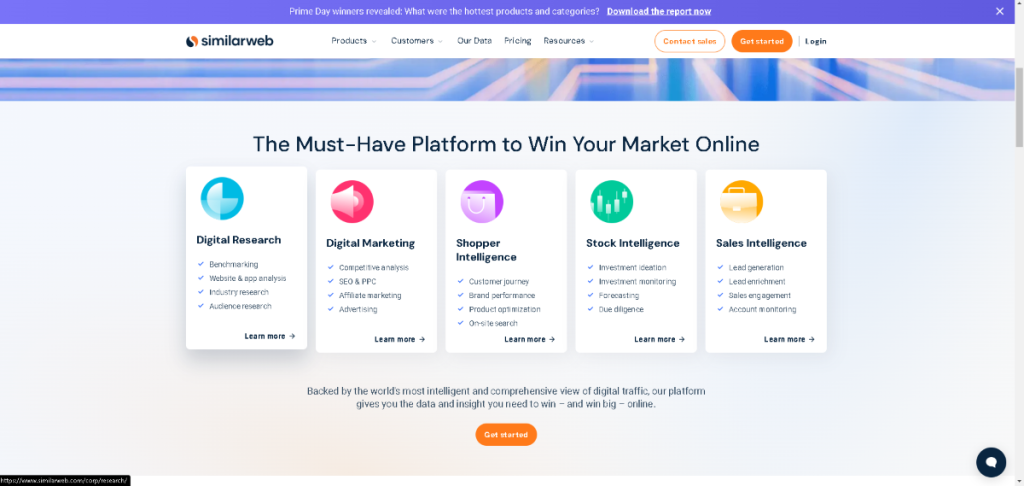
Similarweb’s competitive analysis features are designed to provide a broad view of how your competitors are performing in terms of traffic and market presence.
Highlights
- Competitor Traffic: Similarweb offers data on competitors’ traffic sources and engagement metrics, allowing you to benchmark your performance against theirs.
- Market Share: The tool provides insights into market share and industry trends, helping you understand your position relative to competitors.
- Competitive Benchmarking: Similarweb allows you to compare your site’s performance against multiple competitors, offering a comprehensive view of the competitive landscape.
Bottom Line
In the Similarweb vs. Google Analytics comparison, Similarweb is the better choice for competitive analysis and market benchmarking. Its broad insights into competitors and market trends make it a valuable tool for strategic planning.
Google Analytics
Overview
Google Analytics provides some competitive analysis features through integrations and additional tools, but it primarily focuses on your website’s performance.
Highlights
- Competitor Benchmarking: While Google Analytics doesn’t offer extensive competitor analysis, it provides benchmarking data through integrations with other Google tools.
- Custom Dashboards: You can create custom dashboards and reports to track competitor-related metrics if you use additional tools and integrations.
- Traffic Analysis: Google Analytics provides in-depth traffic data, which can be useful for understanding how your site compares to competitors in specific areas.
Bottom Line
For comprehensive competitive analysis, Similarweb is preferred over Google Analytics. Google Analytics is more focused on internal performance metrics, making it less suitable for in-depth competitor insights.
Similarweb vs. Google Analytics: Pricing
Similarweb
Overview
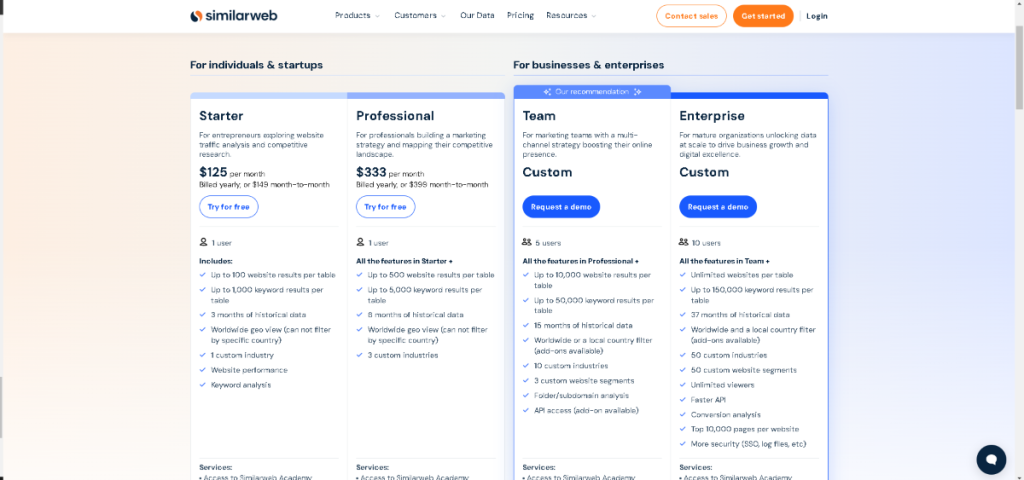
Similarweb offers several pricing tiers based on the features and level of data access you need. Pricing is typically customized based on your business size and requirements.
Highlights
- Free Version: Provides limited access to data and insights, suitable for basic usage and evaluation.
- Pro Plan: Includes more comprehensive data, with pricing available upon request.
- Enterprise Plan: Offers advanced features and customization, with pricing tailored to large organizations.
Bottom Line
Similarweb’s pricing is flexible and caters to various needs, from individual users to large enterprises. Contact Similarweb for detailed pricing information based on your specific requirements.
Google Analytics
Overview
Google Analytics offers a free version and a premium version with additional features and support.
Highlights
- Google Analytics Free: Includes a robust set of features suitable for most small to medium-sized businesses.
- Google Analytics 360: A premium version with advanced features, including enhanced data analysis and support, priced on a case-by-case basis.
Bottom Line
Google Analytics provides a comprehensive free version that meets the needs of most users. For advanced features and enterprise-level support, Google Analytics 360 is available at a premium price.
Similarweb vs. Google Analytics: Additional Features
Both Similarweb and Google Analytics offer additional features that can enhance your analytics strategy. These features can be the deciding factor for some users in the Similarweb vs. Google Analytics debate.
Similarweb vs. Google Analytics: Unique Features
Similarweb
Overview
Similarweb includes additional features that provide a broader perspective on web analytics and market trends.
Highlights
- Market Research: Similarweb’s market research tools offer insights into industry trends and consumer behavior, providing valuable context for your analytics.
- Mobile App Insights: The tool includes data on mobile app performance, which is useful for businesses with mobile applications.
- Custom Reports: Similarweb allows for customizable reporting, enabling you to tailor reports to specific business needs.
Bottom Line
For users looking for a broad range of additional features and market insights, Similarweb stands out in the Similarweb vs. Google Analytics comparison. Its unique tools for market research and mobile app analytics offer added value. For a fuck review on S imilerweb click here.
Google Analytics
Overview
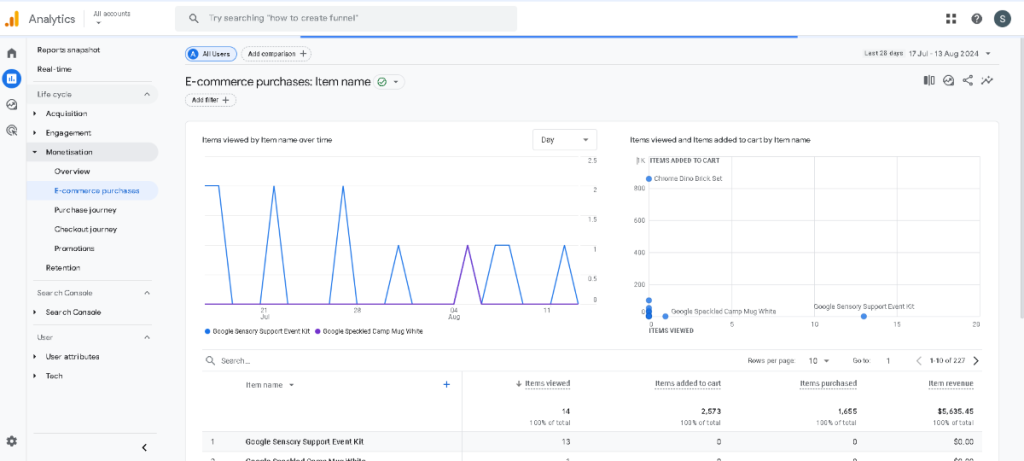
Google Analytics offers advanced features and integrations that enhance its core analytics capabilities.
Highlights
- Integration with Google Ads: Google Analytics integrates seamlessly with Google Ads, providing a unified view of your advertising and analytics data.
- Enhanced E-commerce Tracking: The tool offers detailed e-commerce tracking features, including product performance and transaction data.
- Custom Alerts: Google Analytics allows you to set up custom alerts for specific metrics, helping you stay on top of important changes in your data.
Bottom Line
For advanced features and integrations, Google Analytics is the superior choice in the Similarweb vs. Google Analytics debate. Its capabilities in e-commerce tracking and integration with other Google services provide added functionality for users.
What Are Similarweb vs. Google Analytics?
Similarweb vs. Google Analytics represents a comparison between two of the leading analytics tools available today. Both tools offer valuable insights into website performance, traffic, and market trends, but they cater to different needs. Similarweb is known for its comprehensive market and competitor analysis, while Google Analytics excels in detailed user behavior and traffic analysis.
Understanding these tools in depth will help you determine which one aligns best with your analytics needs. Whether you’re looking to gain a broad view of market trends or detailed insights into user behavior, the Similarweb vs. Google Analytics debate is worth considering carefully.
Wrap Up
Choosing between Similarweb and Google Analytics can feel like selecting between two powerful tools with distinct strengths. Similarweb offers a broad perspective on market and competitive insights, making it ideal for strategic planning and market analysis. On the other hand, Google Analytics provides in-depth data on user behavior and site performance, making it a must-have for detailed analytics and custom reporting. Consider where you are in your analytics journey and pick the tool that best supports your goals. In the battle of Similarweb vs. Google Analytics, there’s no wrong choice—just the right tool for your needs.

